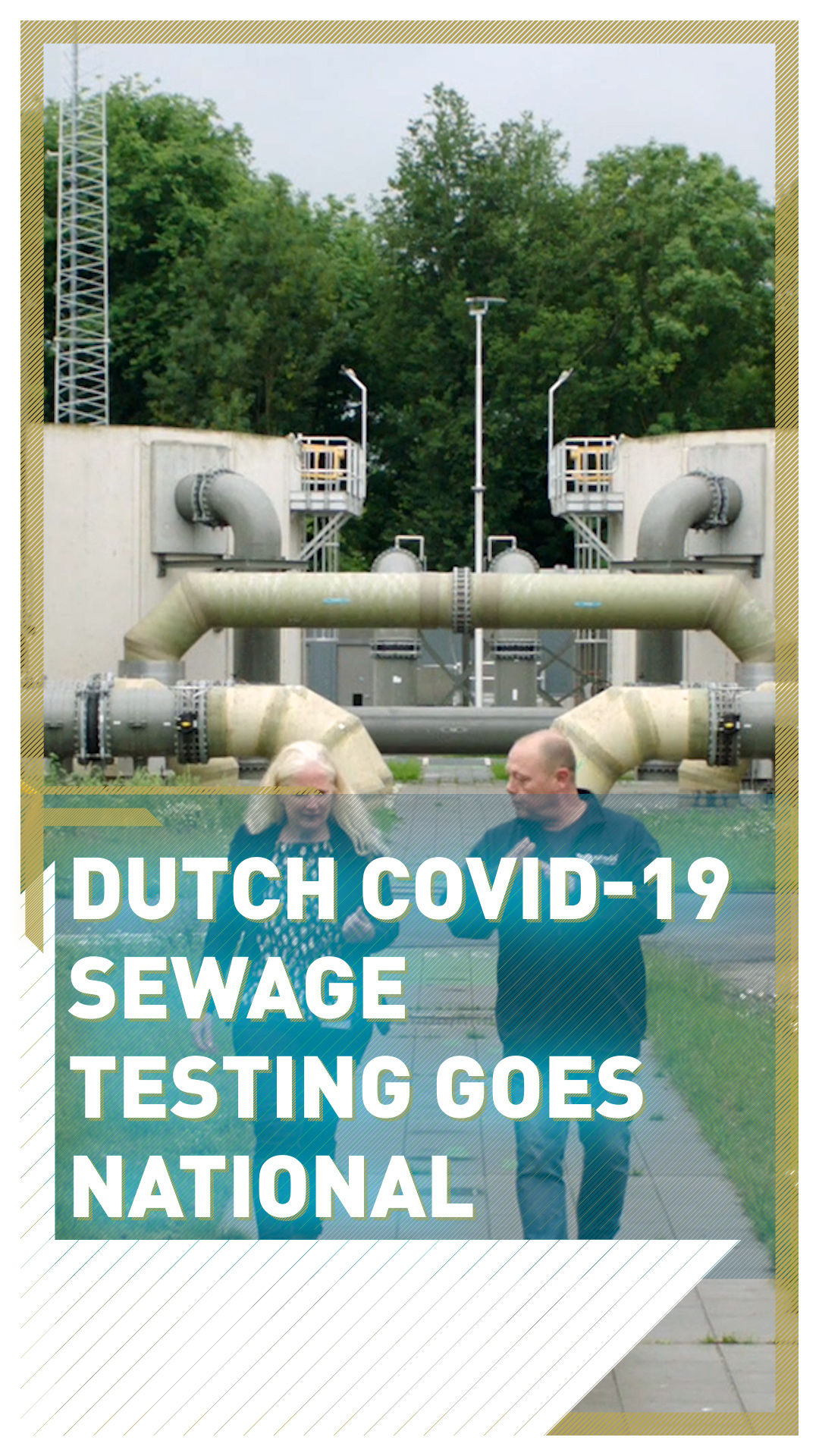02:20

Amid the fight against COVID-19, human waste is fast becoming the proverbial canary in the coal mine. And it is Dutch wastewater scientists who are helping to set the trend of the early warning system.
In The Netherlands, the National Institute for Public Health and the Environment (RIVM) has been analyzing sewage water for the presence of COVID-19 at several sites across the country since February.
One such location is the enormous Nereda wastewater treatment plant in Utrecht. One of the most advanced facilities of its kind in the world, it treats 64 million liters of sewage water every day.
Read more: Spain refines COVID-19 wastewater testing system by focusing on sludge

According to Ana Maria de Roda Husman, Head of Environment at the National Institute for Public Health and the Environment, 'we are the first in the world to do these analyses on a national level.' /CGTN Europe
According to Ana Maria de Roda Husman, Head of Environment at the National Institute for Public Health and the Environment, 'we are the first in the world to do these analyses on a national level.' /CGTN Europe
In the RIVM laboratories in Bilthoven near Utrecht, Ana Maria de Roda Husman, the body's head of environment, is working with her team to detect many different substances, ranging from plastics to drugs. But in this particular case, they are looking for viruses.
"The first cases of COVID-19 in the Netherlands were identified in Tilburg," says De Roda Husman. "If we had analyzed the sewage water there at the time, we could have saved valuable time and maybe anticipated the first wave."
The scientists use the wastewater testing to map where, and at what speed, the virus is moving around. Or if infection rates are increasing.
Analyzing sewage water has become commonplace over the past two decades, yet what is unprecedented in RIVM's recent work is the size of the network.
"From next month, we are scaling up to over 300 of these locations. That means we're going to test all the water treatment plants in the Netherlands," says De Roda Husman.
"We are the first in the world to do these analyses on a national level."
Watch: Wastewater becoming a key tool in tracing COVID-19 in Italy

'From next month, we are scaling up to over 300 of these locations,' says RIVM's De Roda Husman
'From next month, we are scaling up to over 300 of these locations,' says RIVM's De Roda Husman
Another advantage of the technique is that it is non-invasive, anonymous, and it is relatively cheap. The environmental scientist, who also advises the World Health Organization, says that more and more countries are starting to follow the Dutch example.
"It's quite simple," she explains, overlooking one of the giant treatment tanks.
"You spread the virus when you go to the bathroom, even if you don't know you're infected yet. So testing the water becomes a crucial early warning system."
After the tests, the data are passed to the health ministry and others involved in the COVID-19 medical response, such as hospitals, which can then decide to adapt their strategy or to anticipate a new wave of infection.
And if such nationalized testing systems can be successfully replicated in other countries, it will be a leap forward in the battle against COVID-19.
For De Roda Husman: "Fighting the virus starts in the laboratory."